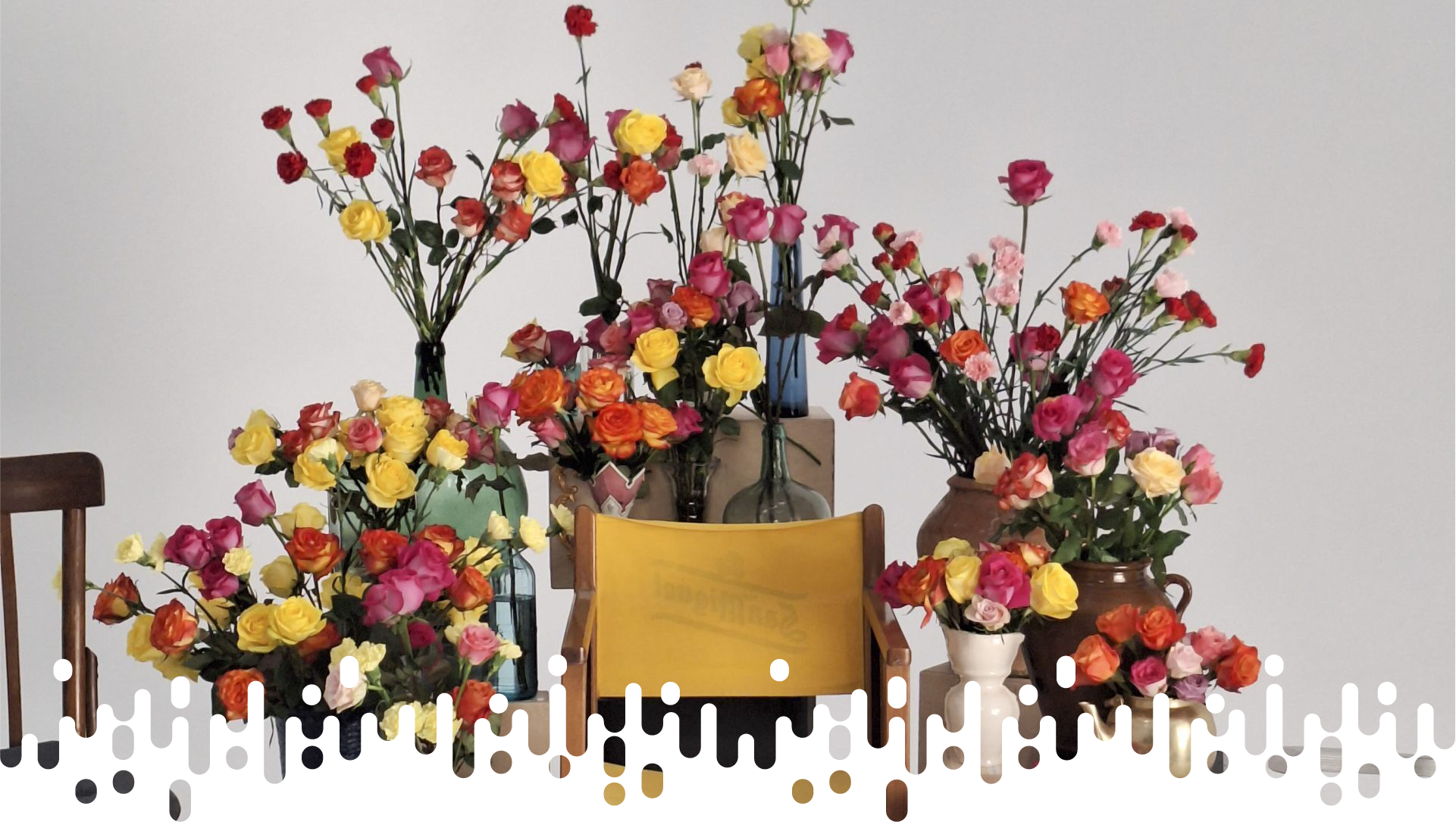
ERNESTO ARTILLO
Emerges as an enigmatic figure whose universe unfolds as a kaleidoscope of identities. His innate affinity for ambiguity serves as a defining trait, not only shaping his artistic discipline but also permeating his beliefs, aesthetics, and psyche. By liberating himself from the confines of creative boundaries, his work transforms into a profound exploration, deconstructing, challenging and probing established notions.
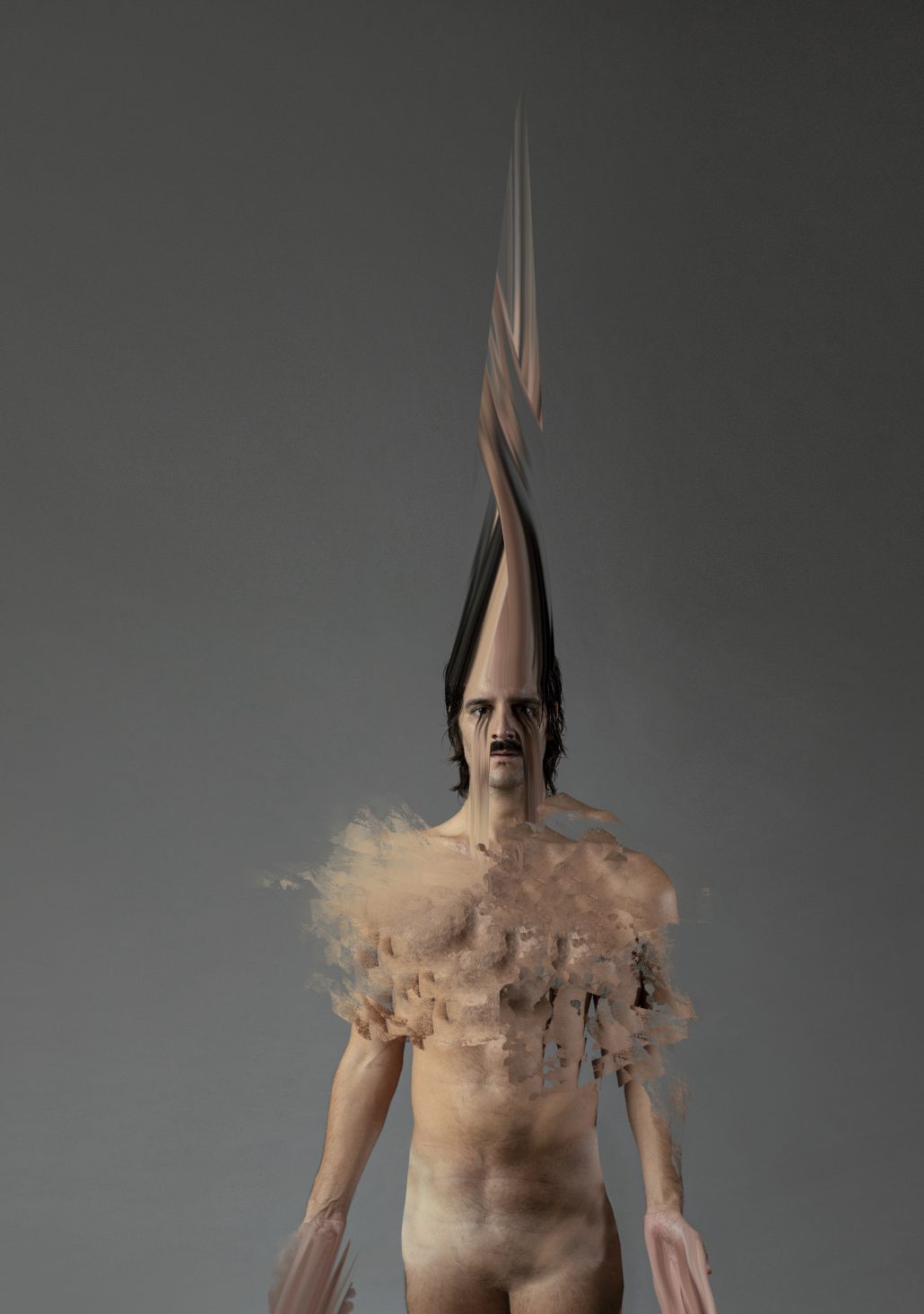
Tradition, family, and history, the triumvirate underpinning his essays, provide a fertile ground for molding, transforming, and questioning, thereby creating a powerful connection with his subjects. Artillo delves into the core theme of the deconstruction of identity – a journey towards freedom. His voice, distinctly feminine in essence, invites us to explore the extraordinary, whether in the digital realm or the offline world, with a punk-inspired allure.
Who is Ernesto Artillo?
A multitude of personas all at once: an Andalusian child who amuses himself by constructing Holy Week thrones, a transvestite reciting poems by Antonio Gala, a grassroots guru, a retiree in Cabo de Gata, an altar decorator, a Carthusian monk eager to go out and get drunk from time to time, a teenager transforming every idea into a new profession, a shy and brave man at the same timen. Ernesto Artillo is an invention.
What influences your style the most?
My foremost influence is my father, who predetermined that I would be an artist even before I was born. From him, I acquired the technique of collage, which extends beyond crafting with paper; it’s a method that shapes my essence and fuels my constant desire to deconstruct existing things and reconstruct them in a different manner—whether it be an artistic discipline, a belief, an aesthetic, or my own identity. I believe that this inclination towards ambiguity is perhaps what defines me the most.
Where do you find beauty?
For me, beauty is an unanswered question. It is a mystery, a sensation that, if identified, can manifest in anything.
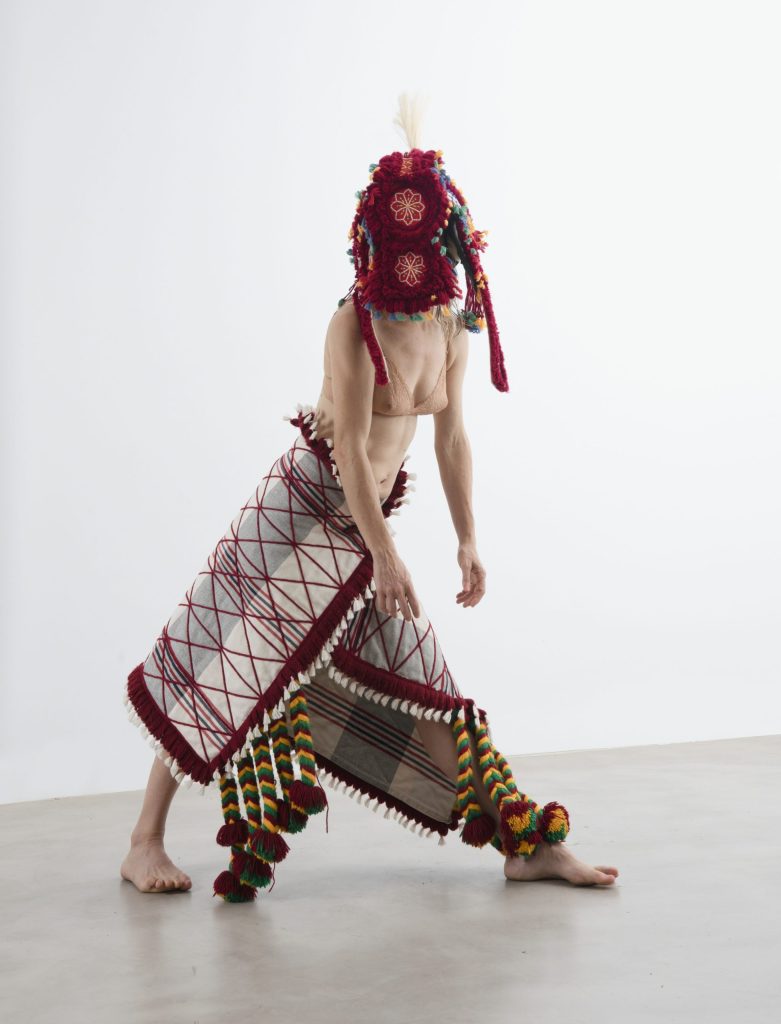
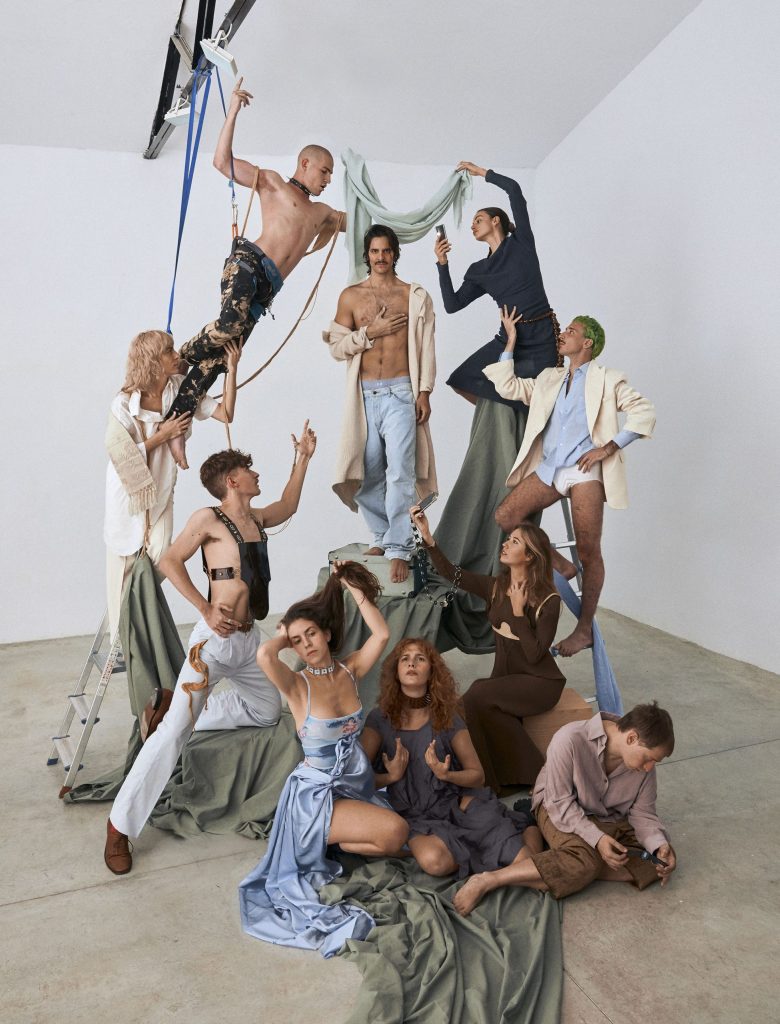
Being an "undisciplinary" artist: what does it mean?
It’s about diving into any artistic discipline, whether or not you’ve had prior training, intentionally tossing aside its norms to fuse them with your own concepts. The emphasis isn’t on technique, but rather on the curiosity in approaching it, the pleasure in experiencing it, and the learning that naturally follows.
Your projects showcase a variety of creative disciplines, ranging from fashion, writing, and flamenco to photography, collage, and installation. How do these languages interweave and complement each other, both in the conception of a work and in its final result?
When approaching a project, I don’t start from a specific discipline. I contemplate what I want to convey and usually intersect it with a medium that I believe can generate a series of tensions, whether by juxtaposing the most commercial with the most personal, the intimate with the public, what has been given to me with what I choose. This sparks a series of questions that I’m eager to explore.
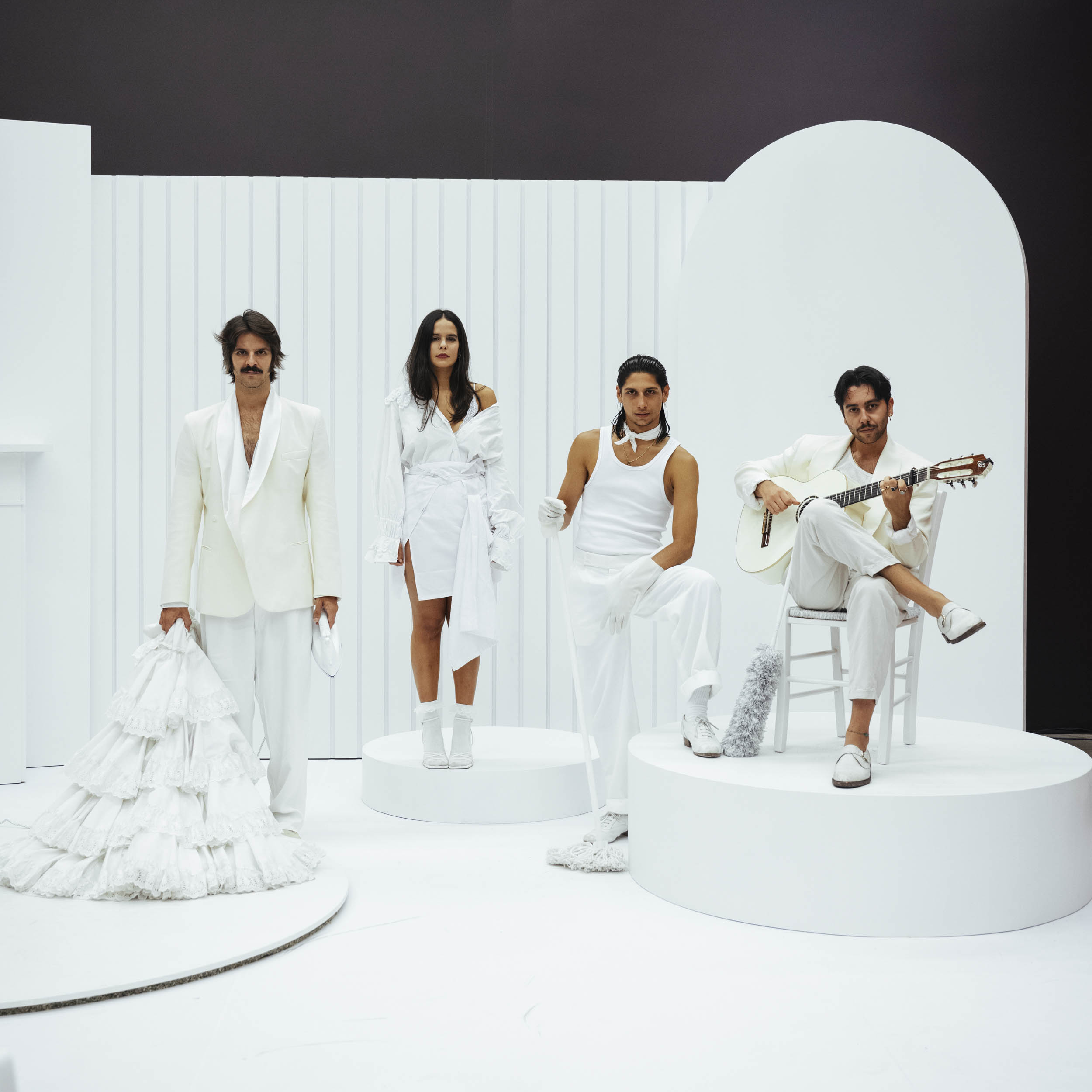
Tradition, family, and history are fundamental elements in your artistic projects. Why do you choose to embrace the past, and how does it enrich your creative process?
I extensively engage with tradition, customs, and folklore that I know because I feel it’s a material already in my hands. It’s easier for me to mold it, transform it, and even contradict it to forge an even more intense relationship with what I adore.
"The deconstruction of identity" is the central theme of your essays. What do you mean?
For me, the deconstruction of identity is linked to freedom. That is, the moment I question what I am supposed to be or what I have been so far, whether because it bores me or because I suspect it conceals some sort of fib, fear, or shame; breaking it down to see it again from another perspective seems like a fertile and healthy exercise. It’s as simple as not taking oneself for granted.
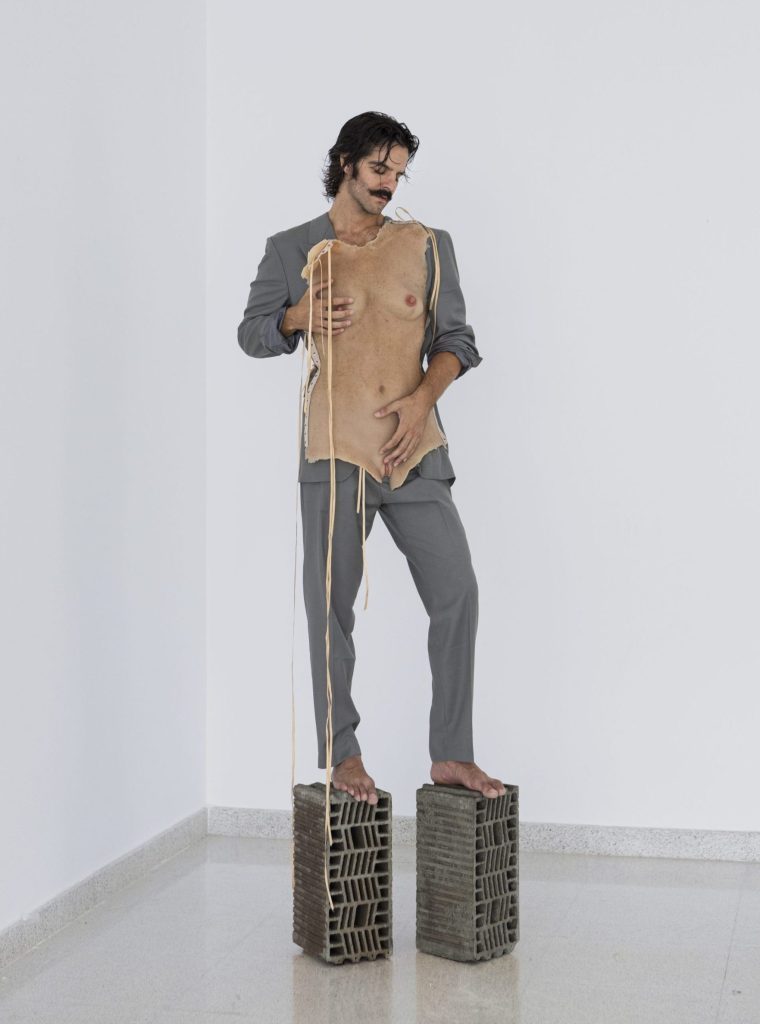
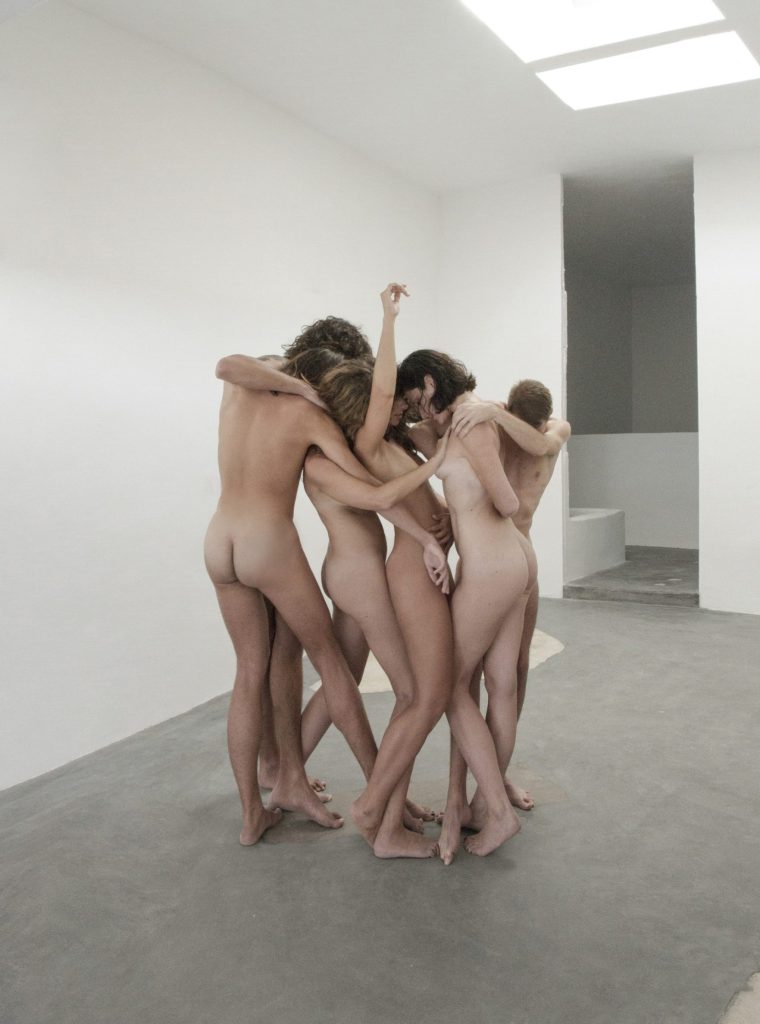
Your work is undeniably feminist. Art: to be radical or not to be?
I’m not sure if it’s feminist, but my work is certainly feminine because I am in my way of looking at and caring for others, and also in my ability to seduce them.
From your perspective, where is art heading in the future?
Art, which is so intrigued by the extraordinary, I suppose, will become even more fascinated by the metaverse, artificial intelligence, but also by the offline, which seems to be the opposite path. I would lean more towards the second option simply because it entices me, appearing more punk. I think the offline has something more challenging, more anti-system if you will, or even closer to the luxury that presence represents.

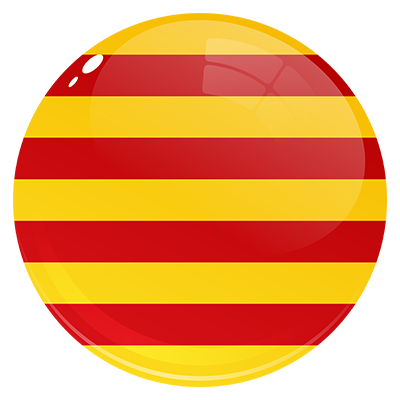 CA
CA
 ES
ES